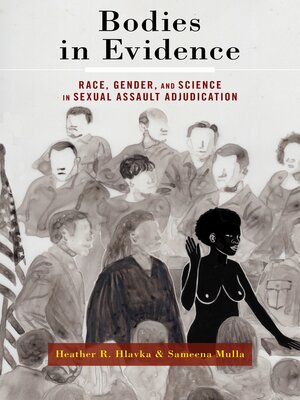Bodies in Evidence
ebook ∣ Race, Gender, and Science in Sexual Assault Adjudication
By Heather R. Hlavka

Sign up to save your library
With an OverDrive account, you can save your favorite libraries for at-a-glance information about availability. Find out more about OverDrive accounts.
Find this title in Libby, the library reading app by OverDrive.



Search for a digital library with this title
Title found at these libraries:
| Library Name | Distance |
|---|---|
| Loading... |
Winner, 2021-2022 AES Senior Book Prize, awarded by the American Ethnological Society
Honorable Mention, Senior Book Prize of the Association for Feminist Anthropology
Uncovers how the process of sexual assault adjudication reinforces inequality and becomes a public spectacle of violence
For victims in sexual assault cases, trials rarely result in justice. Instead, the courts drag defendants, victims, and their friends and family through a confusing and protracted public spectacle. Along the way, forensic scientists, sexual assault nurse examiners, and police officers provide their insight and expertise, shaping the story that emerges for the judge and jury. These expert narratives intersect with the stories of victims, witnesses, and their communities to reproduce our cultural understandings of sexual violence, but too often this process results in reinscribing racial, gendered, and class inequalities.
Bodies in Evidence draws on observations of over 680 court appearances in Milwaukee County's felony sexual assault courts, as well as interviews with judges, attorneys, forensic scientists, jurors, sexual assault nurse examiners, and victim advocates. It shows how forensic science helps to propagate public misunderstandings of sexual violence by bestowing an aura of authority to race and gender stereotypes and inequalities. Expert testimony reinforces the idea that sexual assault is physically and emotionally recognizable and always leaves material evidence. The court's reliance on the presence of forensic evidence infuses these very familiar stereotypes and myths about sexual assault with new scientific authority.
Powerful, unflinching, and at times heartbreaking, Bodies in Evidence reveals the human cost of sexual assault adjudication, and the social cost we all bear when investing in forms of justice that reproduce inequality and racial injustice.







